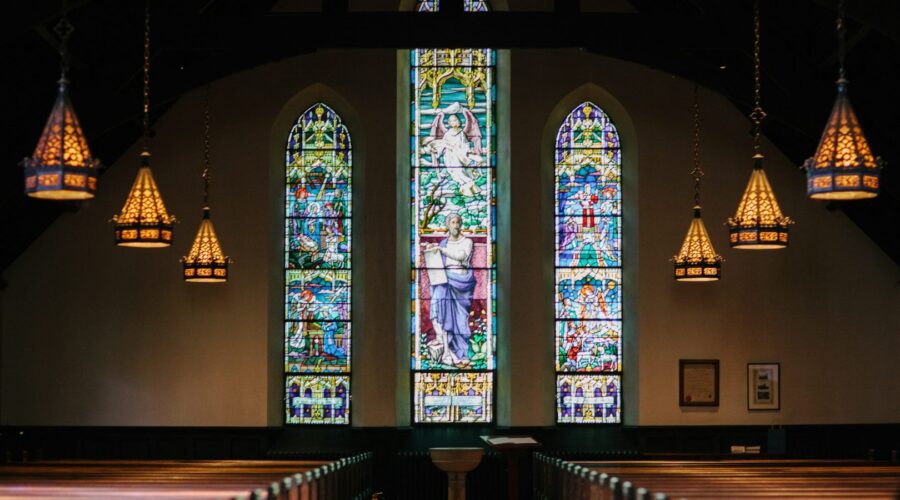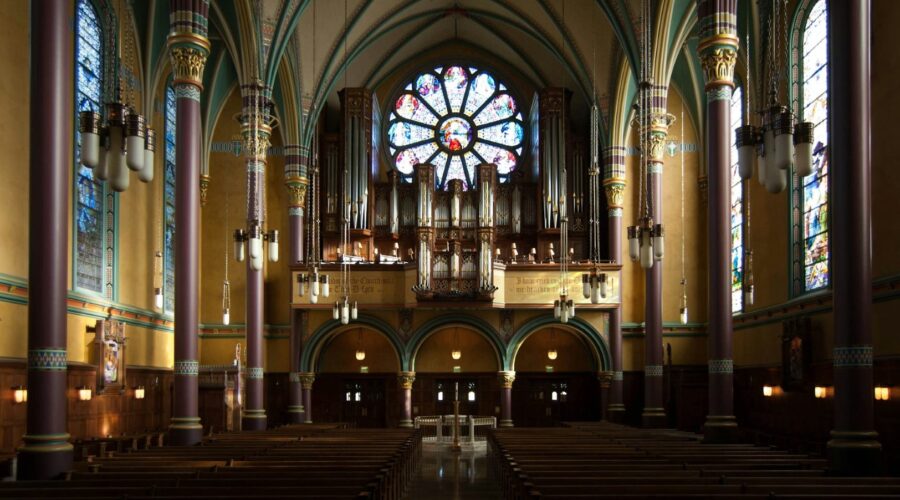Your cart is currently empty!
Month: July 2024

Discover the Significance and History of the San Damiano Cross
Origins and History
The San Damiano cross is a renowned medieval crucifix that is believed to have played a crucial role in the spiritual awakening of Saint Francis of Assisi. According to legend, in 1205, while praying in the dilapidated San Damiano church near Assisi, Francis heard a voice coming from the cross, urging him to “rebuild my house.” This experience profoundly transformed Francis’s life and set him on the path to founding the Franciscan Order.
Description and Features
The San Damiano cross is a testament to the artistic style and craftsmanship of the early 13th century. It is a large, wooden crucifix, measuring approximately 170 centimeters in height and 120 centimeters in width. The cross features a painted image of Jesus Christ, depicted in a traditional iconographic style.
Key Elements of the San Damiano Cross
- Painted Jesus Figure: The central figure is depicted as a crucified Jesus with a serene expression and outstretched arms.
- Byzantine Influences: The cross exhibits Byzantine influences, evident in the elongated limbs and expressive eyes of the Jesus figure.
- Inscriptions: The cross contains Latin inscriptions, including the words “IHS XPS” (an abbreviation of “Jesus Christ”) above Jesus’ head.
- Surrounding Figures: The cross is adorned with painted figures representing Mary, John the Evangelist, Francis of Assisi, and other saints.
Significance and Impact
The San Damiano cross holds immense spiritual and historical significance for the Franciscan movement. It is considered a symbol of:
Francis’s Spiritual Awakening
The cross is believed to have been the catalyst for Francis of Assisi’s spiritual transformation, inspiring him to embrace a life of poverty and service.
Franciscan Spirituality
The San Damiano cross became an iconic symbol representing the Franciscan emphasis on simplicity, humility, and love for creation.
Artistic Inspiration
The cross’s unique artistic style and iconography have influenced countless works of art and religious objects throughout history.
Current Location and Preservation
Today, the San Damiano cross is housed in the Basilica of San Damiano in Assisi, Italy. The cross has undergone extensive restoration efforts to preserve its historical and artistic integrity. It remains a popular pilgrimage site for those seeking inspiration and connection with the Franciscan tradition.
Conclusion
The San Damiano cross is a remarkable historical and spiritual artifact that has played a pivotal role in the life of Saint Francis of Assisi and the development of the Franciscan Order. Its unique iconography and profound significance continue to inspire and captivate believers worldwide.
Frequently Asked Questions (FAQs)
Q: Who painted the San Damiano cross?
A: The artist who painted the cross remains unknown.
Q: What is the significance of the IHS XPS inscription?
A: IHS XPS is a medieval Latin abbreviation for “Jesus Christ,” symbolizing Jesus’s presence on the cross.
Q: Can I visit the San Damiano cross today?
A: Yes, the San Damiano cross is located in the Basilica of San Damiano in Assisi, Italy, and is open to the public for visitation.

Empowering Your Faith: Comprehensive Prayer Points for the Church
Introduction: The Vital Role of Prayer for the Church
Prayer is the lifeblood of a thriving church. Through prayer, we connect with God, seek His guidance, and intercede for the needs of our community. Daily prayer is essential for the growth, unity, and impact of any church.
H2: Essential Prayer Points for the Church
1. Spiritual Renewal and Revival
* Pray for a fresh outpouring of the Holy Spirit upon the church.
* Ask for a deepening of faith, love, and holiness among members.
* Seek a revival of spiritual passion and evangelism.2. Unity and Harmony
* Pray for the removal of barriers and divisions within the congregation.
* Ask for a spirit of acceptance, forgiveness, and reconciliation.
* Intercede for the harmony of hearts and minds in all church activities.3. Effective Leadership
* Pray for wisdom, guidance, and discernment for pastors and elders.
* Seek God’s protection over church leaders and their families.
* Lift up their burden of shepherding the flock and making critical decisions.4. Evangelism and Outreach
* Pray for God to open doors for the church to reach out to the community.
* Ask for boldness and creativity in evangelistic efforts.
* Intercede for the salvation of souls and the transformation of hearts.5. Financial Stability
* Pray for God to provide the financial resources necessary for the church’s ministry.
* Seek guidance in stewardship and wise financial management.
* Ask for protection against debt, fraud, and financial mismanagement.6. Growth and Expansion
* Pray for an increase in membership and a vibrant congregation.
* Ask for God to bless the church with new opportunities for ministry and expansion.
* Intercede for the establishment of new ministries and the growth of existing ones.7. Mission and Vision
* Pray for clarity and alignment in the church’s mission and vision.
* Seek God’s guidance in setting goals and priorities.
* Intercede for the successful implementation of the church’s strategic plan.8. Protection and Guidance
* Pray for protection against spiritual attacks and false teachings.
* Ask for God’s guidance in discerning the right path and avoiding pitfalls.
* Intercede for the safety and well-being of all members of the congregation.H2: Practical Tips for Effective Prayer
* Set aside specific time for prayer: Establish a regular schedule and make prayer a priority.
* Be specific in your prayers: Express your concerns, needs, and desires clearly.
* Pray with faith and expectancy: Believe that God hears your prayers and will answer them.
* Use prayer resources: Utilize prayer lists, Bible verses, and guided prayers to enhance your focus.
* Pray in community: Join with other members in prayer gatherings for greater impact.
* Pray consistently: Make prayer an ongoing part of your daily life, not just in times of need.H2: Benefits of United Prayer for the Church
* Spiritual Renewal: Prayer unites the congregation in spirit, fostering revival and transformation.
* Increased Faith: Shared prayers build up faith and trust in God’s power and will.
* Greater Unity: Prayer breaks down barriers and promotes harmony within the congregation.
* Enhanced Evangelism: United prayer empowers the church to reach out with boldness and effectiveness.
* Answered Prayers: God responds to the prayers of His people when they are lifted up in unity.H2: Conclusion: The Power of Prayer for a Thriving Church
Prayer is the catalyst that unlocks the boundless potential of the church. By embracing these essential prayer points and implementing practical tips, we can empower our congregations and experience the transformative power of God. Remember, prayer is not a duty but a privilege, and through it, we can see our churches flourish and make a lasting impact on the world.

Unlocking the Power of Prayer for the Church: A Comprehensive Guide
“`html
Prayer is an essential aspect of the Christian life, and its importance is magnified when it comes to the church. Through prayer, we align ourselves with God’s will, intercede for others, and experience the transformative power of the Holy Spirit. This guide will delve into the multifaceted role of prayer for the church, providing insights, examples, and practical tips to help you unlock its transformative potential.
Understanding Prayer for the Church
Prayer for the church is not a mere ritual but a conduit through which we can:
- Intercede for the church’s well-being: We can pray for unity, growth, and the fulfillment of God’s mission.
- Support church leaders: We can intercede for pastors, elders, and deacons, asking for wisdom, guidance, and protection.
- Strengthen the church body: We can pray for the spiritual growth, maturity, and unity of church members.
Types of Prayer for the Church
There are various types of prayer that can be employed for the church:
Intercessory Prayer
Focusing on intercession for the church’s well-being, unity, growth, and direction.
Supplication Prayer
Expressing specific requests for the church, such as provision for resources, healing, or protection.
Thanksgiving Prayer
Acknowledging and expressing gratitude for the blessings, provisions, and answered prayers within the church.
Corporate Prayer
Gathered as a church body to engage in united prayer, interceding for one another and the church’s overall mission.
Benefits of Prayer for the Church
Prayer for the church brings numerous benefits:
- Enhanced unity and fellowship: United in prayer, church members experience a sense of belonging and shared purpose.
- Increased spiritual growth: Prayer fuels spiritual growth and maturity, leading to a deeper understanding and connection with God.
- Enhanced effectiveness: Prayer empowers the church to fulfill its mission, reaching out to the community and making a lasting impact.
- Protection and guidance: Through prayer, we seek God’s protection, guidance, and wisdom for the church’s journey.
Practical Tips for Effective Prayer
To enhance the effectiveness of prayer for the church, consider these practical tips:
- Pray regularly: Establish a consistent time and place for prayer, whether individually or as a group.
- Be specific: Avoid vague prayers. Instead, focus on specific needs, requests, and intercessions.
- Pray according to God’s will: Seek God’s guidance and discernment to ensure that prayers align with His plan.
- Believe in God’s power: Approach prayer with faith, believing that God hears and answers.
- Pray with others: Join in corporate prayer gatherings, where the power of united prayer is magnified.
Examples of Prayer for the Church
Below are examples of powerful prayers for the church:
- For Unity: “Lord, we pray for unity within our church. Break down walls of division and create a harmonious environment where love and acceptance flourish.”
- For Growth: “Heavenly Father, we ask for the growth of our church. Grant us wisdom to reach out to the lost and bring them to the knowledge of Christ.”
- For Leaders: “O Lord, we pray for our church leaders. Give them wisdom, discernment, and courage as they guide the church towards Your will.”
Conclusion
Prayer for the church is a vital aspect of the Christian life. Through intercession, we intercede for the church’s well-being, support its leaders, strengthen the body, and experience the transformative power of God. By understanding the different types of prayer, its benefits, and practical tips for effectiveness, we can unlock its potential and contribute to the growth and impact of the church. Remember to pray regularly, specifically, according to God’s will, and with faith and belief. Together, let us engage in powerful prayer for the church, believing that God hears and answers, empowering us to fulfill His mission.
“`

A Sermon of Gratitude: Unlocking the Transformative Power of Thanksgiving
Thanksgiving, a time-honored tradition, is more than just a day of feasting and merrymaking. It’s an invitation to reflect on life’s blessings, cultivate gratitude, and awaken the transformative power that lies within. This sermon aims to explore the biblical foundation, personal benefits, and practical ways to incorporate gratitude into our daily lives, inspiring us to live with a heart filled with thankfulness and experience its profound impact.
I. A Biblical Foundation: Gratitude in God’s Word
Throughout Scripture, God exhorts us to be thankful in all circumstances (1 Thessalonians 5:18). Gratitude is not a mere sentiment but a fundamental aspect of our relationship with God and an expression of our faith and trust in His providence.
In Psalm 100, the psalmist implores us to “Enter his gates with thanksgiving, and his courts with praise.” Thanksgiving is a gateway to God’s presence, where we can experience His joy and love. When we acknowledge God as the source of our blessings, we humble ourselves and recognize His sovereignty over our lives.
Moreover, Colossians 3:15 admonishes us to “let the peace of Christ rule in your hearts… and be thankful.” Gratitude and inner peace are interconnected. Expressing gratitude shifts our focus from our worries to the blessings we possess, fostering a sense of contentment and tranquility.
II. The Transformative Power of Gratitude
Gratitude is not merely a pleasant emotion; it has the power to transform our lives and bring about profound benefits.
A. Mental Health:
- Improves mood and reduces symptoms of depression and anxiety.
- Enhances resilience and coping mechanisms during challenging times.
- Promotes positive thinking and optimism.
B. Physical Health:
- Lowers blood pressure and improves heart health.
- Reduces stress levels, which can have positive effects on overall health.
- Boosts the immune system.
C. Relationships:
- Strengthens bonds with loved ones by expressing appreciation and building intimacy.
- Fosters a sense of gratitude and empathy towards others.
- Promotes forgiveness and reconciliation.
D. Spiritual Growth:
- Cultivates a deeper connection with God, acknowledging His blessings.
- Enhances our awareness of God’s presence in our lives.
- Promotes humility and a recognition of our dependence on God.
III. Practicing Gratitude in Daily Life
Incorporating gratitude into our daily lives is not always easy, but it is a practice that can be cultivated with effort.
A. Keep a Gratitude Journal:
Write down three to five things you are thankful for each day. This practice forces us to focus on the positive and appreciate the small blessings often overlooked.
B. Express Gratitude Verbally:
Express your appreciation to others, whether it’s a loved one, a colleague, or a stranger. Verbalizing gratitude strengthens relationships and fosters a sense of community.
C. Practice Mindfulness:
Take time each day to pause and appreciate the present moment. Notice the beauty of nature, the kindness of others, or the simple joys of life.
D. Serve Others:
One of the best ways to cultivate gratitude is to give back to others. Volunteering or helping those in need reminds us of our blessings and the importance of making a positive impact on the world.
Conclusion
Thanksgiving is not just a day of celebration but an ongoing journey of gratitude. By reflecting on the biblical foundation of gratitude, embracing its transformative power, and practicing it in our daily lives, we can unlock the fullness of God’s blessings and live with hearts filled with joy, peace, and abundance. May this sermon inspire you to cultivate a spirit of thanksgiving, experience its profound benefits, and live a transformed life in the presence of our gracious God.

Unlocking the Transformative Power of Christ Community
Table of Contents
- The Significance of Christian Community
- Elements of a Vibrant Christian Community
- Benefits of Belonging to a Christ Community
- Practical Ways to Foster Community
- Overcoming Barriers to Christian Community
The Significance of Christian Community
The Christian community is a cornerstone of Christian faith, providing a space for believers to connect, grow, and serve together. It is a microcosm of the Kingdom of God, where we experience love, acceptance, and the transformative presence of Christ.
Jesus himself modeled the importance of community. He gathered a group of disciples to share in his ministry, love one another, and carry on his mission after his departure. The early church, as described in the book of Acts, was a vibrant community where believers shared everything and supported one another.
In today’s fragmented and isolating world, the need for Christian community is perhaps greater than ever. It offers a sense of belonging, purpose, and support that can sustain us through life’s challenges.
Elements of a Vibrant Christian Community
A healthy Christian community is characterized by certain key elements:
- Authenticity and Transparency: Members share their struggles and joys openly, fostering a sense of vulnerability and trust.
- Biblical Grounding: The community is grounded in the teachings of the Bible and seeks to apply them to daily life.
- Diversity and Inclusivity: The community welcomes people from all backgrounds, ages, and walks of life, embracing the richness of God’s creation.
- Servanthood and Compassion: Members prioritize serving others, both within the community and beyond, embodying the spirit of Christ.
- Accountability and Encouragement: Members hold each other accountable for their actions while also providing support and encouragement through life’s ups and downs.
Benefits of Belonging to a Christ Community
The benefits of belonging to a thriving Christian community are numerous:
- Spiritual Growth: Community provides a space for spiritual enrichment, where we can learn from others, deepen our faith, and grow in Christ.
- Emotional Support: In a community, we can find a safe and understanding environment to share our struggles, fears, and joys, knowing that we are loved and supported.
- Practical Assistance: When facing life’s challenges, members of the community can offer practical help in the form of meals, transportation, childcare, and more.
- Accountability and Encouragement: Having a community to hold us accountable and provide encouragement can help us stay on track with our spiritual goals and overcome obstacles.
- Sense of Belonging: A community provides a sense of belonging and connection, fulfilling our innate desire for human connection.
Practical Ways to Foster Community
Fostering a thriving Christian community takes intentionality and effort. Here are some practical steps you can take:
- Attend Church Regularly: Regular church attendance is essential for connecting with other believers and participating in worship and ministry.
- Join a Small Group: Small groups provide a more intimate setting for fellowship, Bible study, and prayer.
- Volunteer: Serving others is a powerful way to build relationships and demonstrate the love of Christ.
- Initiate Contact: Reach out to new people in your church or small group, inviting them for coffee or a meal.
- Be Yourself: Authenticity is crucial for building genuine relationships. Let people know the real you, both the strengths and weaknesses.
- Be a Good Listener: Listening attentively shows others that you care and value their perspectives.
- Forgive Others: Community inevitably involves misunderstandings and conflicts. When these arise, choose forgiveness over holding onto anger.
Overcoming Barriers to Christian Community
Despite the benefits, some barriers can hinder the development of Christian community. Here’s how to overcome them:
- Time Constraints: Make time for community a priority by scheduling it into your daily or weekly routine.
- Disagreements: Handle disagreements with grace and respect, seeking to understand different perspectives and maintain unity.
- Past Hurts: If you have experienced hurt in a previous church community, don’t let it deter you from seeking out a healthy community now.
- Fear of Vulnerability: Vulnerability is essential for community, but it can be scary. Take small steps by sharing your experiences and feelings gradually.
- Lack of Willingness: If you’re not feeling the benefits of community, consider evaluating your own commitment and willingness to engage.
Conclusion
Christian community is an indispensable aspect of our faith. By fostering vibrant and welcoming communities, we can experience the transformative power of Christ’s love, grow spiritually, support one another, and make a positive impact on the world. As we invest in Christian community, we not only benefit ourselves but also contribute to the flourishing of God’s Kingdom on earth.

Moving to a New City? How to Find a Welcoming Church
Introduction
Moving to a new city can be an exciting but daunting experience. One of the things that many people worry about when they move is finding a new church. You want to find a place where you feel welcomed, can connect with others, and grow spiritually. But with so many churches to choose from, it can be hard to know where to start.
This blog post will provide you with some tips on how to find a new church in a new city. We’ll discuss what to look for in a church, how to find churches in your area, and how to visit churches to get a feel for them.
What to Look for in a Church
There are a few things that you should look for when choosing a new church. These include:
- Theology: Make sure that the church’s beliefs align with your own.
- Worship style: Do you prefer a traditional or contemporary worship service?
- Community: Is the church welcoming and friendly? Do you feel like you can connect with others there?
- Leadership: Do you respect and trust the pastor and other leaders of the church?
- Location: How convenient is the church to your home or work?
How to Find Churches in Your Area
Once you know what you’re looking for in a church, the next step is to find churches in your area. There are a few different ways to do this:
- Online: There are a number of websites that can help you find churches in your area. Some popular options include ChurchFinder.com, TheChurchDirectory.com, and Google Maps.
- Local newspapers: Many local newspapers have a section that lists church services in the area.
- Community centers: Community centers often have bulletin boards where churches can post information about their services.
- Ask around: Talk to your friends, neighbors, or coworkers to see if they have any recommendations for churches in the area.
How to Visit Churches
Once you’ve found a few churches that you’re interested in, the next step is to visit them. This will give you a chance to get a feel for the church and see if it’s a good fit for you. Here are a few things to look for when you visit a church:
- The atmosphere: Is the church welcoming and friendly? Do you feel like you can connect with others there?
- The worship service: Does the worship service align with your own preferences? Do you feel like you can connect with God during the service?
- The sermon: Is the sermon biblical and challenging? Do you feel like you can learn from the sermon?
- The community: Do you see people of all ages and backgrounds at the church? Do you feel like you could get involved in the community?
Conclusion
Finding a new church in a new city can be a challenge, but it’s also an opportunity to find a place where you can grow spiritually and connect with others. By following the tips in this blog post, you can increase your chances of finding a church that’s a good fit for you.
Additional Tips
- Don’t be afraid to ask questions: When you visit a church, don’t be afraid to ask the pastor or other members of the congregation questions about the church. This will help you get a better understanding of the church’s beliefs, values, and culture.
- Be patient: It may take some time to find a church that’s a good fit for you. Don’t get discouraged if you don’t find the perfect church right away.
- Pray about it: Ask God to help you find a church where you can grow spiritually and connect with others.

Explore the Meaning and Significance of Sunday Mass Readings: A Comprehensive Guide
Introduction
Sunday Mass, the central gathering for Catholics around the world, invites us to delve into the readings from Sacred Scripture. These readings, proclaimed during the Liturgy of the Word, offer profound insights into God’s plan, guide our spiritual growth, and nurture our faith.
Understanding the Structure of Sunday Readings
Each Sunday, three readings are proclaimed:
- First Reading: Typically from the Old Testament, providing a historical or prophetic background for the Gospel.
- Responsorial Psalm: A sung or recited response to the First Reading, deepening our understanding and praise.
- Second Reading: Often from the New Testament, providing apostolic letters or writings that interpret or apply Scripture.
- Gospel: The central reading from one of the four Gospels, narrating Jesus’ life, teachings, and actions.
2 Chronicles 7:14
14“If my people, who are called by my name, will humble themselves and pray and seek my face and turn from their wicked ways, then I will hear from heaven, and I will forgive their sin and will heal their land.
Interpretation
- God promises to hear and heal if His people humble themselves, pray, seek His face, and turn from sin.
- God’s forgiveness and healing come when His people acknowledge their need for Him and align their lives with His will.
Philippians 3:7-14
- 7 But whatever gain I had, I counted as loss for the sake of Christ.
- 8 Indeed, I count everything as loss because of the surpassing worth of knowing Christ Jesus my Lord. For his sake I have suffered the loss of all things and count them as rubbish, in order that I may gain Christ
- 9 and be found in him, not having a righteousness of my own that comes from the law, but that which comes through faith in Christ, the righteousness from God that depends on faith—
- 10 that I may know him and the power of his resurrection, and may share his sufferings, becoming like him in his death,
- 11 that by any means I may attain the resurrection from the dead.
- 12 Not that I have already obtained this or am already perfect, but I press on to make it my own, because Christ Jesus has made me his own.
- 13 Brothers, I do not consider that I have made it my own. But one thing I do: forgetting what lies behind and straining forward to what lies ahead,
- 14 I press on toward the goal for the prize of the upward call of God in Christ Jesus.
Interpretation
- Paul emphasizes that knowing Christ surpasses all else, even personal achievements.
- He acknowledges his imperfection but presses on to know Christ fully.
- Paul’s goal is to attain the resurrection and share in Christ’s sufferings and power.
Matthew 24:42-44
42“Therefore, stay awake, for you do not know on what day your Lord is coming.
- 43 But know this, that if the master of the house had known in what part of the night the thief was coming, he would have stayed awake and would not have let his house be broken into.
- 44 Therefore you also must be ready, for the Son of Man is coming at an hour you do not expect.
Interpretation
- Jesus urges His disciples to stay awake and be ready for His return.
- The parable of the thief illustrates the unexpectedness of Christ’s coming.
- We must remain vigilant and prepared for Christ’s return, even though the timing is unknown.
Finding Meaning in Sunday Readings
To fully appreciate the meaning of Sunday readings, consider these tips:
- Read the readings beforehand: Familiarity with the passages enhances your understanding and participation.
- Listen attentively during Mass: Pay attention to the proclaimed readings and the homily, which provides further insights.
- Reflect personally: Take time after Mass to reflect on the readings and their implications for your life.
- Discuss with others: Share your thoughts and insights with family, friends, or a study group.
- Pray with the readings: Use the readings as a source of meditation and prayer, seeking God’s guidance and inspiration.
Conclusion
Sunday Mass readings provide a rich tapestry of God’s Word that nourishes our faith, guides our actions, and deepens our understanding of the Christian journey. By embracing these readings, we encounter the living Word of God and grow closer to Him. May the Sunday liturgy continue to be a source of inspiration and transformation as we walk in the footsteps of Christ.

Faith Bible Verses: A Guide to Enriching Your Spiritual Journey
Introduction
Faith, the bedrock of a meaningful spiritual life, is a virtue that transcends mere belief. It is a lifeline that connects us to the divine and empowers us to overcome life’s challenges. The Bible, an inexhaustible reservoir of wisdom, offers a trove of faith bible verses that serve as guiding lights on our path to spiritual growth.
The Power of Faith
Faith empowers us to:
- Trust in God’s unwavering presence and guidance (Hebrews 11:1)
- Overcome obstacles and mountains of adversity (Matthew 17:20)
- Receive healing and restoration for our bodies and souls (James 5:15)
li>Live with purpose and meaning, knowing we are part of God’s greater plan (Ephesians 2:10)
Developing and Strengthening Faith
Cultivating and nurturing faith is an ongoing pursuit. Here are some biblical principles to help you strengthen your faith:
Prayer
Prayer is a vital channel through which we connect with God. By opening our hearts and sharing our concerns and desires, we express our trust in His presence and ability to meet our needs (Matthew 21:22).
Study God’s Word
The Bible is a treasure trove of wisdom that reveals God’s character and His plans for us. By immersing ourselves in its teachings, we gain a deeper understanding of His love and faithfulness, which strengthens our faith (Romans 10:17).
Fellowship with Believers
Surrounding ourselves with like-minded individuals who share our faith provides encouragement and support. Through fellowship, we learn from others’ experiences, share insights, and lift each other up in faith (Hebrews 10:25).
Faith Bible Verses for Different Situations
The Bible offers a plethora of faith bible verses that provide comfort, guidance, and hope in various life situations:
Trials and Adversities
- “In this world, you will have tribulation. But take heart; I have overcome the world.” (John 16:33)
- “Consider it pure joy, my brothers and sisters, whenever you face trials of many kinds, because you know that the testing of your faith produces perseverance.” (James 1:2-3)
Fear and Anxiety
- “Do not be anxious about anything, but in every situation, by prayer and petition, with thanksgiving, present your requests to God.” (Philippians 4:6)
- “For God gave us a spirit not of fear but of power and love and self-control.” (2 Timothy 1:7)
Hope and Encouragement
- “Now may the God of hope fill you with all joy and peace in believing, so that you may abound in hope by the power of the Holy Spirit.” (Romans 15:13)
- “Let us not become weary in doing good, for at the proper time we will reap a harvest if we do not give up.” (Galatians 6:9)
Conclusion
Faith bible verses are invaluable companions on our spiritual journey, providing us with wisdom, guidance, and hope. By incorporating these verses into our daily lives through prayer, Bible study, and fellowship, we can strengthen our faith, overcome challenges, and live lives filled with purpose and meaning.
Remember, faith is not merely a belief but a dynamic force that connects us to God and transforms our lives. As we cultivate our faith, we tap into a wellspring of strength, hope, and resilience that enables us to face life’s uncertainties with unwavering trust and confidence.

City Life Church: A Guide to Finding the Right Fit
Choosing a church can be a daunting task, especially in a big city like New York City. With so many churches to choose from, it can be hard to know where to start. If you’re looking for a church that will help you connect with God and grow in your faith, then a city life church may be a good option for you.
What is a City Life Church?
A city life church is a church that is located in a city and that focuses on reaching out to people who live in the city. These churches typically offer a variety of programs and services that are designed to meet the needs of city dwellers, such as:
- Sunday services that are geared towards young adults and professionals
- Small groups that meet during the week for Bible study and fellowship
- Community outreach programs that serve the needs of the local community
- Opportunities to get involved in leadership and ministry
Benefits of Attending a City Life Church
There are many benefits to attending a city life church, including:
- You’ll be able to connect with other Christians who live in the city and who share your values
- You’ll have opportunities to grow in your faith through Bible study, small groups, and other programs
- You’ll be able to get involved in serving the community and making a difference in the city
- You’ll be able to find a church that fits your lifestyle and personality
How to Find the Right City Life Church for You
If you’re looking for a city life church, then there are a few things you should keep in mind:
- Location: Choose a church that is located in a convenient location for you
- Size: Consider the size of the church and choose one that is a good fit for you. Some people prefer large churches with a lot of activities and programs, while others prefer smaller churches with a more intimate feel
- Denomination: If you have a particular denomination that you prefer, then make sure to choose a church that is part of that denomination
- Doctrine: Make sure that you agree with the church’s doctrine and beliefs
- Leadership: Consider the leadership of the church and make sure that you feel comfortable with the pastor and other leaders
Tips for Getting Involved in a City Life Church
Once you’ve found a city life church that you like, there are a few things you can do to get involved:
- Attend Sunday services: This is a great way to get to know the church and its members
- Join a small group: This is a great way to meet other Christians and grow in your faith
- Volunteer: There are many opportunities to volunteer at city life churches, from serving at the food pantry to teaching Sunday school
- Get involved in leadership: If you have a passion for serving others, then there are many opportunities to get involved in leadership at city life churches
Conclusion
Attending a city life church can be a great way to connect with other Christians, grow in your faith, and make a difference in the community. If you’re looking for a church that will help you live out your faith in the city, then a city life church may be a good option for you.

Discover the People’s Church: A Vibrant Community for All
In the heart of every community, there’s a place where people come together to connect, support, and grow. For many, that place is the People’s Church. This unique and vibrant religious institution has been a beacon of hope and inspiration for people from all walks of life for decades.
The History of the People’s Church
The People’s Church was founded in 1965 by a group of visionaries who believed that religion should be inclusive, accessible, and relevant to the needs of the modern world. They envisioned a church where people could come as they are, without judgment, and find a sense of belonging and purpose.
The People’s Church Today
Today, the People’s Church has grown into a thriving community with multiple locations across the country. It offers a wide range of programs and services to meet the needs of its members, including:
- Weekly worship services
- Bible study and discussion groups
- Community service projects
- Youth and children’s ministries
- Support groups for various needs
The People’s Church is known for its welcoming atmosphere and diversity. It is a place where people of all ages, races, sexual orientations, and gender identities are welcome and celebrated.
The Beliefs of the People’s Church
The People’s Church is a progressive Christian church. It believes in the following core principles:
- The inherent worth and dignity of all people
- The power of love to transform lives
- The importance of social justice and compassion
- The belief that God is present in all of creation
The People’s Church is not bound by traditional dogma or beliefs. Instead, it encourages its members to explore their own spirituality and beliefs in an open and accepting environment.
The Benefits of Attending the People’s Church
There are many benefits to attending the People’s Church, including:
- A sense of community and belonging
- Opportunities for spiritual growth and development
- Support and guidance in times of need
- Inspiration to make a positive difference in the world
- A chance to connect with people from all walks of life
How to Get Involved
If you’re interested in learning more about the People’s Church or getting involved, there are several ways to do so:
- Visit the website at www.peopleschurch.org
- Attend a weekly worship service at one of the locations
- Contact the church office to inquire about membership or volunteer opportunities
The People’s Church is a vibrant and welcoming community that is always open to new members. Whether you’re looking for a place to connect, grow, or make a difference, the People’s Church may be the perfect fit for you.
People’s Church Locations Location Address Main Campus 123 Main Street, Anytown, CA 12345 North Campus 456 North Street, Anytown, CA 12346 South Campus 789 South Street, Anytown, CA 12347 
Discover the Wellspring Church: A Spiritual Oasis in the Heart of Your Community
A Sanctuary for Spiritual Growth and Transformation
The Wellspring Church is a vibrant and welcoming community where individuals from all walks of life come together to connect with God, grow in faith, and make a meaningful impact on the world.
Founded on the principles of love, grace, and compassion, the church fosters an atmosphere where believers can deepen their spiritual journey and live out their God-given purpose.
Dynamic Worship Experiences
At Wellspring Church, worship is not merely a ritual but an integral part of the church experience. Sunday services are a dynamic blend of contemporary music, engaging messages, and meaningful moments of reflection.
Contemporary Music
The church’s worship band leads the congregation in a captivating fusion of contemporary Christian music that uplifts spirits, inspires hearts, and creates an atmosphere of praise and adoration.
Engaging Messages
Thought-provoking sermons delve into the Bible’s teachings, providing practical insights for daily living. Pastors and guest speakers share messages that challenge, encourage, and offer guidance on navigating life’s complexities with faith.
Moments of Reflection
Throughout services, there are designated moments for silent reflection, meditation, and prayer. These moments allow congregants to connect with God, seek His presence, and find solace in His peace.
Life-Changing Small Groups
Beyond Sunday services, Wellspring Church offers a variety of small groups where members can connect on a deeper level, build relationships, and engage in meaningful discussions.
- Bible Studies: In-depth studies of Scripture provide opportunities to explore God’s Word and apply its teachings to everyday life.
- Prayer Groups: Members gather to pray for one another, the community, and the world, fostering a sense of unity and support.
- Interest-Based Groups: Groups formed around shared interests, such as hiking, cooking, or community service, connect members and encourage personal growth.
Community Outreach and Service
Wellspring Church believes in extending God’s love beyond its walls. The church actively engages in community outreach programs that meet the needs of the underprivileged and make a lasting impact on the world.
- Food Pantry: The church operates a food pantry that provides groceries to those in need, alleviating hunger and providing essential sustenance.
- Homeless Shelter: Wellspring Church partners with local organizations to provide shelter and support to individuals experiencing homelessness.
- Mission Trips: Members regularly participate in mission trips to serve communities in need both locally and abroad, demonstrating the transformative power of love and compassion.
Leadership and Mentorship
The Wellspring Church is led by a dedicated team of pastors and leaders who are committed to providing spiritual guidance, mentorship, and pastoral care.
Members have access to personalized support and guidance through:
- Pastoral Counseling: Pastors offer confidential counseling sessions to address personal challenges, provide spiritual guidance, and foster emotional well-being.
- Mentorship Programs: Experienced members are matched with new believers or individuals seeking spiritual growth, providing encouragement and support.
- Prayer Ministry: Members can request prayer support from the church leadership team, creating a network of prayer warriors who intercede for one another.
Additional Resources
Wellspring Church Website
Contact Wellspring Church by Email
Wellspring Church Facebook Page
Wellspring Church Instagram Page
Frequently Asked Questions
Q: What are the service times at Wellspring Church?
A: Sunday services are held at 9:00 AM and 11:00 AM.
Q: How can I get involved in a small group?
A: You can visit the church website or contact the church office to inquire about available small groups.
Q: Does Wellspring Church offer programs for children and youth?
A: Yes, the church has vibrant children’s and youth programs that provide age-appropriate spiritual education, activities, and mentorship.

Unveiling the Essence of the LDS Religion: A Comprehensive Guide
Introduction
The Church of Jesus Christ of Latter-day Saints, commonly known as the LDS Church, is a vibrant and dynamic religion with a rich history and diverse beliefs. Its adherents, often referred to as Mormons, have built a global community centered on the teachings of Jesus Christ. This comprehensive guide explores the key facets of LDS religion, providing valuable insights into its doctrines, practices, and cultural traditions.
Core Beliefs
The LDS religion is rooted in a set of fundamental beliefs:
- God the Father: The ultimate creator and ruler of all things.
- Jesus Christ: The Savior and Redeemer of mankind, who came to Earth in mortal form.
- Holy Ghost: A member of the Godhead who guides and inspires.
- Ordinances and Covenants: Sacred ceremonies and agreements that connect individuals to God.
- Restoration: The LDS Church believes that the original Christian church, as established by Jesus Christ, was corrupted over time and that the LDS Church is the restored version.
li>Eternal Families: Family relationships are designed to continue beyond mortality.
Religious Practices
LDS members engage in various religious practices:
Worship Services
Called Sacrament Meetings, these weekly gatherings focus on renewing covenants, partaking of the sacrament (bread and water representing Christ’s sacrifice), and listening to sermons.
Temple Worship
Dedicated temples are sacred spaces where members participate in special ordinances, such as marriage and baptism for the dead.
Missionary Work
Young men and women serve full-time missions for two years, sharing their beliefs and inviting others to receive baptism.
Scripture Study
LDS members study a standard set of scriptures, which include the Bible, the Book of Mormon, the Doctrine and Covenants, and the Pearl of Great Price.
Cultural Traditions
The LDS community embraces certain cultural traditions:
- Word of Wisdom: A health code that promotes abstinence from alcohol, tobacco, and excessive caffeine and sugar.
- Modesty: Emphasis on dressing and behaving in a modest and appropriate manner.
- Family Home Evening: A weekly night dedicated to family prayers, scripture study, and activities.
- Education: High value placed on education and lifelong learning.
Organization and Governance
The LDS Church has a unique organizational structure:
Lay Clergy
Local congregations are led by volunteer lay leaders called bishops and stake presidents.
General Authorities
A group of 15 men known as the Quorum of the Twelve Apostles and a three-man First Presidency provide worldwide leadership.
Revelation
The LDS Church believes that leaders and members can receive ongoing revelation from God.
History and Growth
The LDS Church was founded in 1830 by Joseph Smith Jr., who claimed to have received divine revelations. Over the years, it has experienced significant growth, establishing a global presence with over 16 million members.
Conclusion
The LDS religion is a multifaceted faith that offers spiritual guidance, a sense of community, and a path to eternal happiness. Its core beliefs, religious practices, cultural traditions, and unique organizational structure set it apart from other Christian denominations. Understanding the LDS religion enables greater appreciation for its diverse beliefs and contributions to society.
Additional Resources: